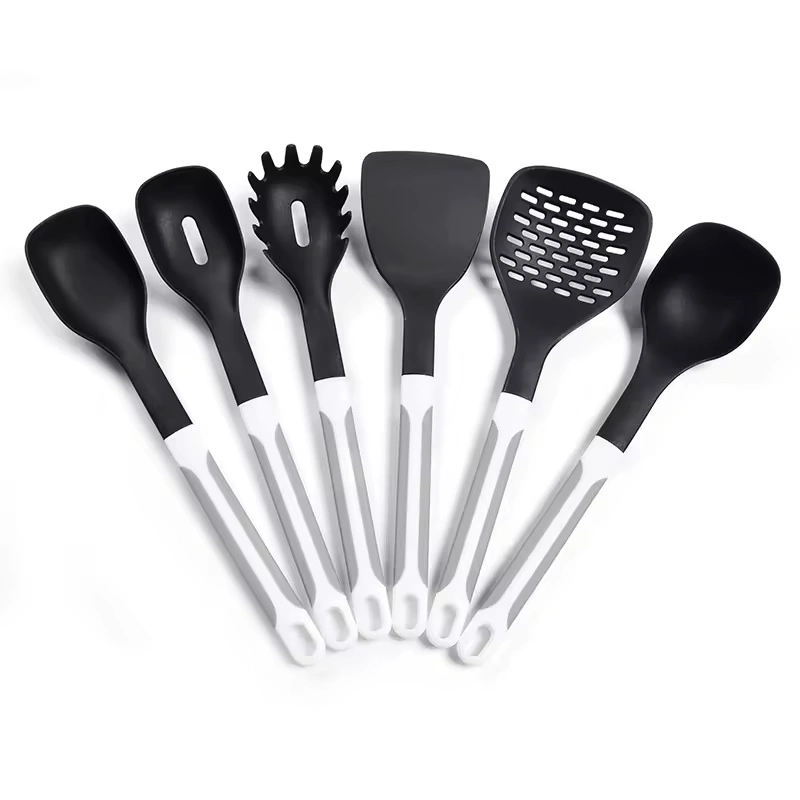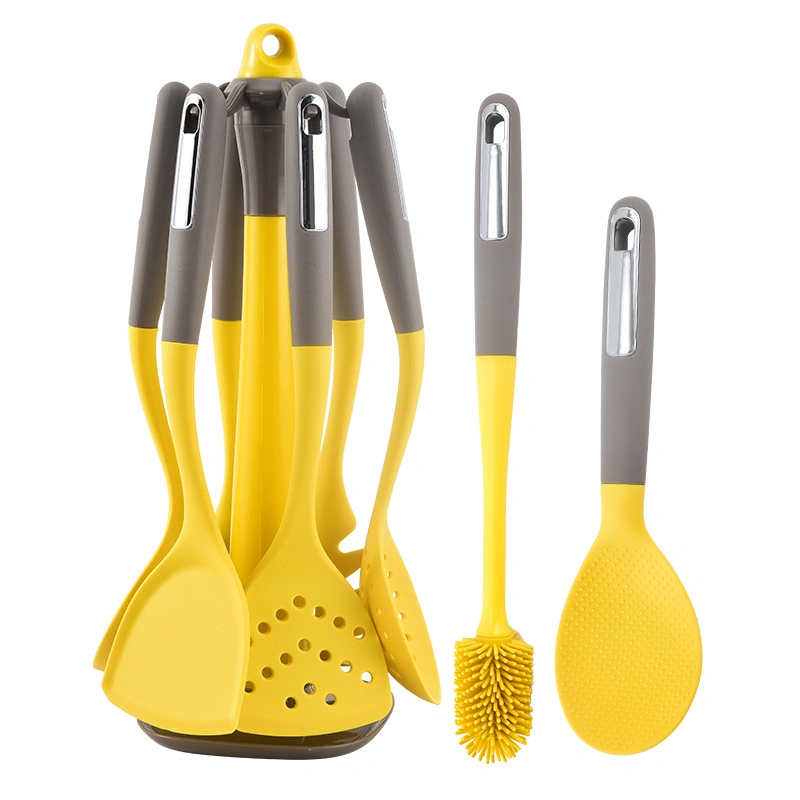The Importance of Choosing the Right Kitchen Utensils
When it comes to outfitting your kitchen, the material of your cooking utensils plays a pivotal role in ensuring performance, safety, and durability. Among the myriad options available, nylon and silicone have emerged as two of the most popular materials. Both have their advocates, each claiming superiority based on different criteria. This article will delve into the attributes of nylon and silicone kitchen utensils, compare their strengths and weaknesses, and explore wholesale, custom, and China factory options. By the end, you’ll be equipped to make an informed decision about which material best suits your cooking needs.
Nylon Kitchen Utensils

Nylon kitchen utensils are celebrated for their durability and heat resistance, making them ideal for a variety of cooking tasks. These utensils can withstand high temperatures without melting or warping, ensuring longevity. Moreover, nylon is safe for use with non-stick cookware, as it is less likely to scratch or damage the coating. This versatility makes nylon a favored choice among both home cooks and professional chefs.
However, nylon is not without its drawbacks. While it is heat-resistant, it may not perform as well under extremely high temperatures compared to silicone. Prolonged exposure to high heat can cause nylon utensils to deteriorate over time. Additionally, there have been concerns about the safety of nylon, particularly when it comes into contact with hot foods or liquids. Despite being generally considered safe, some users prefer the non-toxic properties of silicone.
Silicone Kitchen Utensils

Silicone kitchen utensils have gained a strong following due to their excellent heat resistance and longevity. Silicone can endure extreme temperatures without deforming or releasing harmful chemicals, making it a reliable choice for high-heat cooking and baking. Additionally, silicone is non-toxic and safe for food contact, as it does not react with ingredients. Its flexibility and non-stick properties are also noteworthy, allowing for easy maneuvering and preventing scratching on delicate surfaces.
Despite these advantages, silicone utensils are not perfect. Some users find silicone spatulas and tongs too flexible for heavy-duty tasks, such as lifting and turning large cuts of meat. Additionally, there is a concern that silicone can retain odors or flavors from certain foods, although thorough cleaning can often mitigate this issue.
Comparing Nylon and Silicone Utensils
When comparing nylon and silicone kitchen utensils, it’s clear that each material has distinct pros and cons. Nylon offers durability and versatility, but its heat resistance and safety may be questioned by some users. In contrast, silicone excels in heat resistance and non-toxic properties but may fall short in handling heavy-duty tasks and maintaining an odor-free performance.
Your choice between nylon and silicone should be guided by your cooking habits and preferences. If you frequently cook at high temperatures and prioritize non-toxic materials, silicone might be the better option for you. Conversely, if you value durability and versatility, nylon could be more suitable.
Wholesale, Custom, and China Factory Options
For those interested in purchasing nylon or silicone kitchen utensils in bulk or custom designs, numerous options are available in the wholesale market and through China factories. Many suppliers offer a wide range of nylon and silicone utensils at competitive prices, with the flexibility to customize products to meet specific needs. Whether sourcing wholesale utensils for a business or creating custom designs for retail, exploring China factory options can provide cost-effective solutions.
Conclusion
In conclusion, the debate between nylon and silicone kitchen utensils comes down to personal preferences and cooking requirements. Both materials have unique advantages and considerations, and your choice should be informed by your specific needs. Whether you prefer the durability of nylon or the heat resistance of silicone, ensuring your kitchen utensils meet your standards is crucial for a satisfying cooking experience.
Common Questions
Are silicone utensils better than nylon for non-stick cooking?
Silicone utensils are generally more suitable for non-stick cooking as they are less likely to scratch or damage non-stick surfaces compared to nylon utensils.
Are nylon utensils safe for high-heat cooking?
While nylon utensils have heat-resistant properties, they may not be as suitable for prolonged high-heat cooking as silicone utensils. It is advisable to avoid exposing nylon utensils to excessive heat.
Where can I find wholesale suppliers for silicone kitchen utensils?
Many suppliers and manufacturers offer silicone kitchen utensils at wholesale prices, with options for customization and bulk orders. Online platforms and trade shows are convenient resources for discovering wholesale suppliers.
Is it better to buy custom kitchen utensils from a China factory?
China factories offer competitive pricing and customization options for kitchen utensils, making them a viable choice for businesses and individuals seeking custom designs and bulk orders. Conducting thorough research and due diligence can help in identifying reputable and reliable China factories for kitchen utensils.
